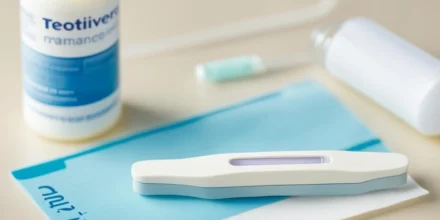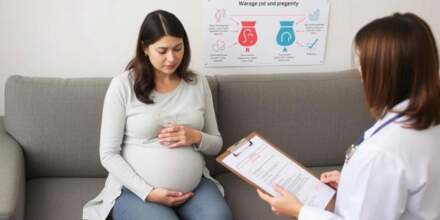Understanding Fertility After Birth
After welcoming a new baby, many parents begin wondering when—and how soon—they might want to grow their family again. In this Q&A, Dr. Stan offers clear, compassionate guidance on everything from postpartum ovulation to timing your next pregnancy for the healthiest outcomes possible.
👉 Want the full scoop on conceiving after childbirth? Read the full article here
Ask Dr. Stan
1. How soon after birth can I get pregnant again?
You can actually conceive as early as three weeks after giving birth—even before your first postpartum period arrives. That’s because ovulation (the release of an egg) can sneak up before any obvious signs. If you’re not ready for another pregnancy just yet, it’s essential to explore birth control options early, even while you’re still recovering.
2. Does breastfeeding protect against pregnancy?
Breastfeeding—especially when done exclusively and frequently—can delay ovulation due to higher prolactin levels. However, this isn’t a guarantee. Some women may still ovulate and become pregnant while breastfeeding. That’s why it’s important to use birth control if you’re not ready for another baby, even if your period hasn’t returned.
3. What are the health risks of getting pregnant too soon after giving birth?
Conceiving within six months of giving birth can increase the risk of complications like preterm birth, low birth weight, and placental issues. Moms may also face higher risks of anemia and nutrient deficiencies. Giving your body time to recover helps you and your future baby thrive.
4. Is there an ideal amount of time to wait between pregnancies?
Yes. Experts recommend waiting at least 18 months before trying to conceive again. This gives your body time to heal, helps replenish nutrients, and reduces risks for both mother and child. Of course, everyone’s circumstances are different, and your healthcare provider can help tailor recommendations for you.
5. What are my birth control options right after delivery?
Great question! Right after giving birth, you have several options: the combination pill, contraceptive implant, NuvaRing, the Depo-Provera shot, the mini-pill (like norethindrone), or an IUD. All of these are safe to use while breastfeeding and can help you space your pregnancies in a healthy way. Be sure to consult your provider about which one fits your needs best.
6. When can I switch to regular birth control pills or the patch?
If you’re no longer breastfeeding, you can generally begin using combination hormonal birth control (which includes estrogen) like pills, patches, or the vaginal ring around six weeks postpartum. These methods are effective, but it’s important to wait until your provider says it’s safe—especially if you’re breastfeeding or had delivery complications.
7. How does my emotional readiness factor into pregnancy planning?
Emotional well-being is just as important as physical recovery. Postpartum life can be overwhelming, and it’s perfectly okay to need time to adjust before expanding your family. If you’re feeling uncertain, anxious, or dealing with postpartum depression, it’s wise to talk to your provider before planning your next pregnancy.
8. Does my age impact how long I should wait to try again?
Age can play a role, especially if you’re over 35 and concerned about fertility. In these cases, some couples may choose to wait 12 months instead of 18–24. Still, it’s crucial to weigh these choices with a healthcare provider to balance your fertility goals and your recovery needs.
9. Can breastfeeding delay the return of my period completely?
Yes, exclusive breastfeeding can delay the return of your menstrual cycle for months—but this varies. Some women may get their periods back even while nursing frequently. Remember, your body can ovulate before that first period returns, so always plan accordingly if you’re avoiding pregnancy.
10. What’s the best way to know when I’m fertile again?
Tracking signs of ovulation, such as changes in cervical mucus or mild pelvic cramping, can help. But because fertility can return unpredictably, especially after childbirth, it’s smart to talk to your women’s healthcare provider for personalized advice and, if needed, help with fertility awareness or contraception options.










